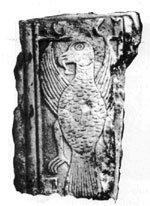Robert Elsie
Texts and Documents of Albanian History
Albanian History
1920 — 1944
The political memoirs of Sejfi Vllamasi, from which the following excerpts covering the period 1912-1920 are taken, contain many interesting first-hand observations on political life in Albania at the time.
The final chapter of the memoirs of the father of Albanian independence, in which he describes the event for which he is best remembered.
An Albanian nobleman recounts his activities at the time of Albanian independence.
A letter to the Great Powers from two Kosovar intellectuals to appeal for assistance against the Serbian annexation of Kosovo.
Memoirs of the wealthy southern Albanian political figure, Mufid bey Libohova, concerning turbulent years in Albanian history.
Kosovo Albanian political leader Hasan bey Prishtina describes his efforts to organise an uprising against Ottoman rule in 1912.
A young Austrian diplomat experiences at first hand the rise and fall of Prince Wied as Albania’s ephemeral monarch in 1914.
The Chief of Staff of the Austro-Hungarian armed forces in the First World War gives an account here of what motivated Austro-Hungarian policies towards Albania during the chaotic events that took place there in 1914.
The American writer Rose Wilder Lane is caught up in a political power struggle during her visit to Tirana in 1921.
Report of a League of Nations commission of inquiry into conditions in southern Albania in 1922-1923.
A German historian visits Kruja and the famed Bektashi teqe (monastery) of Fushë Kruja, Albania.
Petition from Hasan Prishtina received by the Secretariat of the League of Nations on 2 March 1929, protesting against the oppression of Albanian minority in Yugoslavia, and the response of J. Shumenkovich, Permanent Delegate of the Kingdom of the Serbs, Croats and Slovenes, dated 11 July 1929, rejecting the said petition.
Präsentation der Memoiren des österreichisch-ungarischen Albanienforschers, Baron Nopcsa.
Three Catholic priests in Kosovo present a memorandum to the League of Nations on the desperate plight of their people under Serbian rule.
A newspaper account of an attempt to assassinate Albanian King Zog as he left the opera house in Vienna on 20 February 1931.
A short autobiography of Albanian King Zog, taken down by the United States Ambassador in Tirana, Herman Bernstein.
Article published in ‘The New York Times’ by Herman Bernstein, the United States Ambassador to Albania in 1930-1933, that throws light on Albania’s predicament in juggling her relations between Italy, Yugoslavia and Greece.
Stadtmüller's theory that the original homeland of the Albanians was in the northern Albanian district of Mat.
A German anthropologist travels to Theth in Dukagjin in 1937 and attends a funeral, with rites and customs that have long disappeared.
Ein deutscher Anthropologe reist im Jahre 1937 nach Theth in Dukagjin und nimmt an einem zeremoniellen Begräbnis teil.
The text of a memorandum drafted by Bosnian Serb scholar and political figure Vaso Cubrilovic calling for nothing less than the expulsion of the whole Albanian population of Kosovo.
Académicien serbe Vaso Cubrilovic réclame l’expulsion de toute la population albanaise du Kosovo.
An international treaty between the governments of Yugoslavia and Turkey for formalise the start of the expulsion of the Albanians and Turks from Kosovo, Macedonia and southern Serbia.
Bosnian Serb writer and Nobel Prize recipient calls for the partition of Albania between Yugoslavia and Italy.
Faik Bey Konitza, head of the Albanian legation to the United States, reacts to the Italian invasion of his country at Easter 1939.
An Albanian diplomat and former friend of King Zog attacks the Albanian monarch and exposes his corruption.
British writer exposes corruption in the public service under King Zog, an article with possible parallels to modern-day Albania.
An overview of Albanian history and a plea for justice following the Italian invasion of Albania.
Balli Kombëtar, the non-communist resistance movement in the Second World War, presented this political platform after its creation in November 1942.
A report on the SS Skanderbeg Division written by its German commander in October 1944.
The 1944 resolution of the Conference of Bujan, that promised the right to self-determination and even secession for Kosovo, was a document of great significance to the Kosovo Albanian population, but was subsequently ignored and forgotten.
In a last-ditch appeal, Bedri Pejani writes to Heinrich Himmler seeking support for an "Albanian army" to oppose the communists advancing in Kosovo.
Lists of the people arrested by the Nazis in Kosovo in 1944 and detained for transportation to the Reich, with names, professions and grounds for their arrest.
An account of the massacre in Filat (Filiates) and the expulsion of the Albanian Chams from Greece in September 1944.
Memoirs of a Nazi agent and ‘master spy’ in the mountains of northern Albania during the Second World War.
Bericht aus den Bergen Nordalbaniens im Zweiten Weltkrieg von einem deutschen ‘Meisterspion’, Mitglied der militärischen Abwehr der Wehrmacht.
Lazër Radi describes the moment of his arrest in Tirana that would lead to forty-six years of imprisonment and internment in communist Albania.
Chapter from the memoirs of a Catholic priest who survived in communist Albania.
A second memorandum by the Bosnian Serb scholar and political figure Vaso Cubrilovic, proposing a radical solution to the “minority question” in Yugoslavia.
